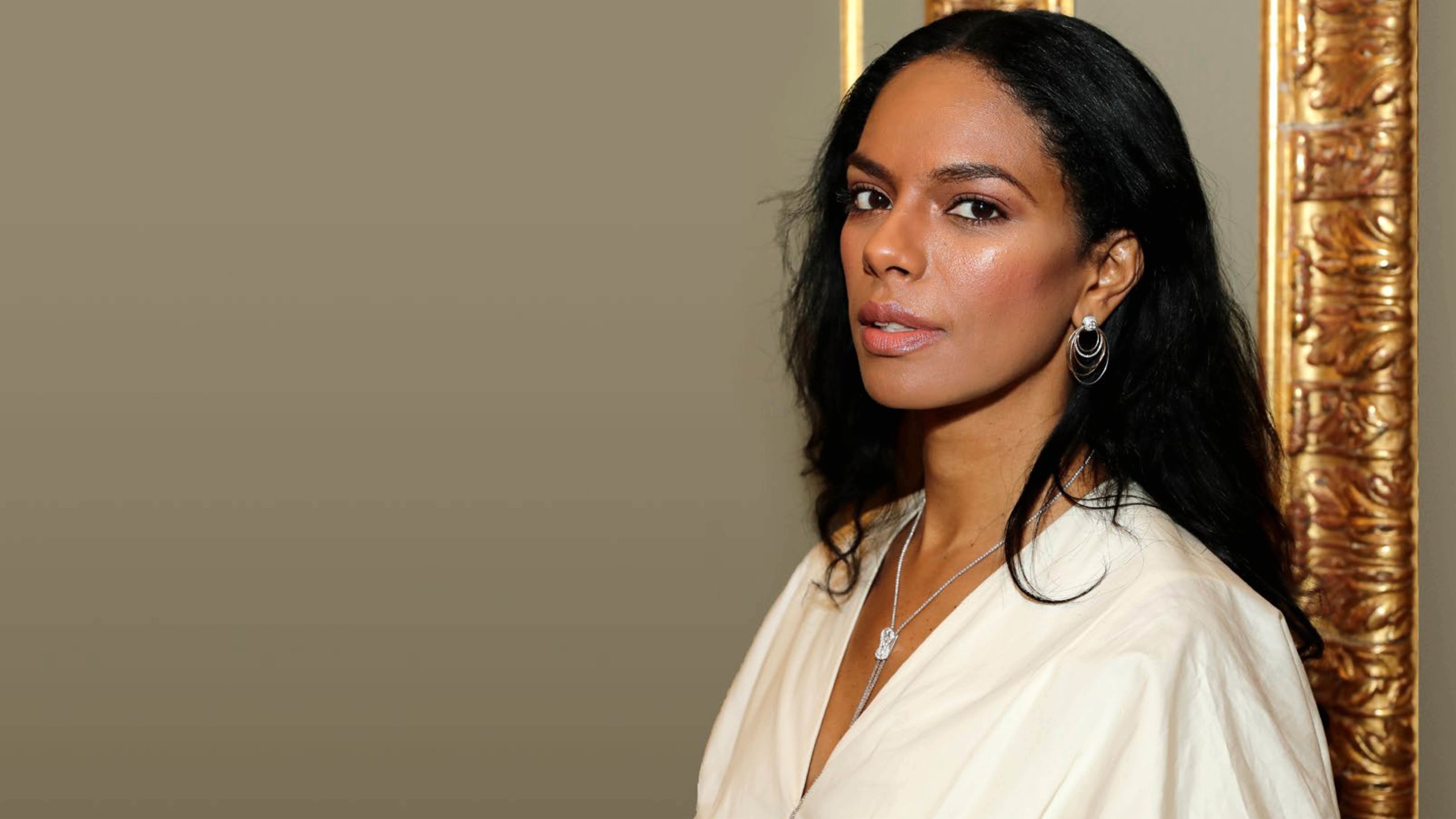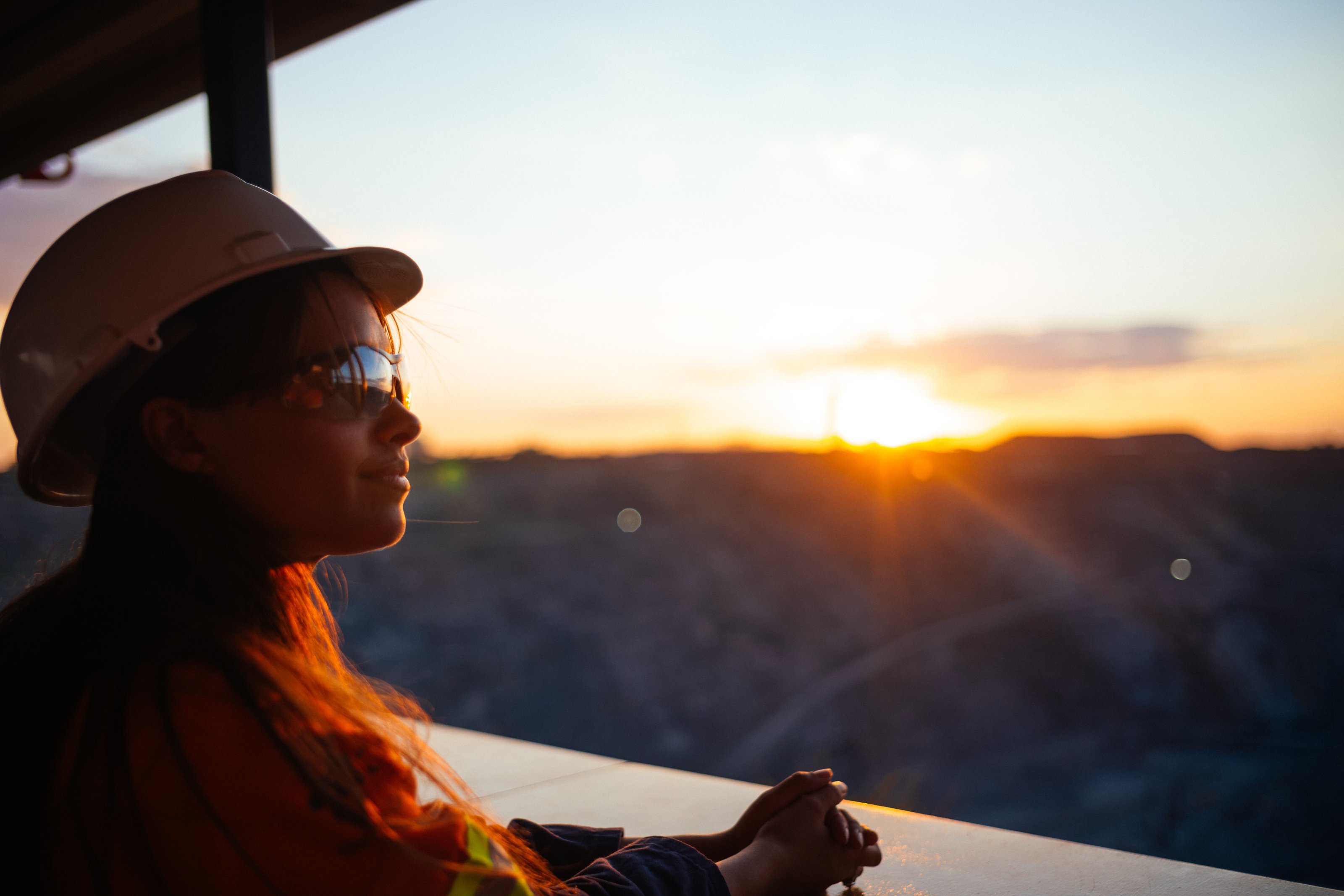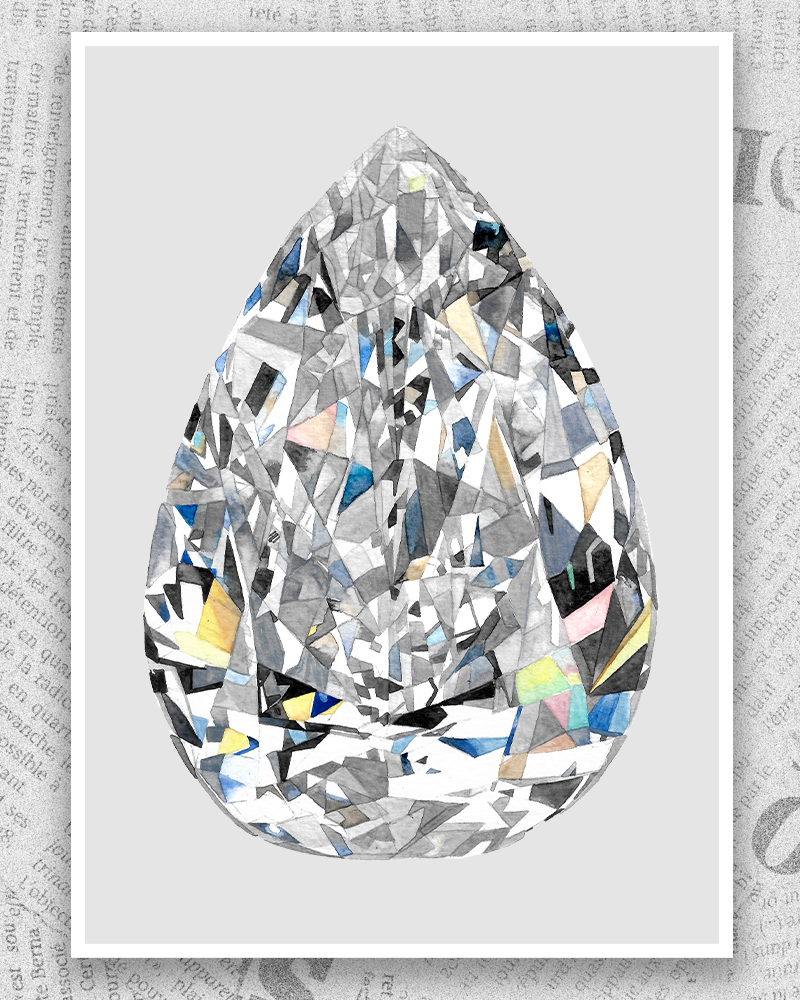African Freedom: Beyond Resource & Diamond Mining | Natural Diamonds
Responsible and ethical mining will help build schools and empower women & girls in Africa, says guest contributor, model and philanthropist Noëlla Coursaris Musunka.

In times of crisis we feel compelled to reassess what is most important to us. As we try to get back to some degree of normality after the global lockdown, we will all be making careful decisions about our lives and exactly how we should work, socialize and travel. But as well as deciding where we go personally, it is also a good time to have a more careful think about the journey taken by the things that we buy and whether or not they are contributing to a happier, fairer world.
Africa is a hugely resource-rich continent and it is only right that the African people should benefit from those resources. There are many lessons to be learnt about how mining, when done properly, can be hugely beneficial for local people. Responsible and ethical mining will empower the lives of women and their communities, while driving economic growth. Diamond mining can bring not just employment opportunities but also much-needed access to healthcare and education – inadequate schooling is an issue in many African countries, and it is a problem that disproportionately affects girls.
Learning leads to careers
For an example of how diamond mining can have a wonderfully transformative effect on the opportunities available to women and girls we can look to Botswana, where the financial impetus from the diamond industry has had an incredible impact on what was once one of the poorest countries in the world. The diamond market has revolutionized Botswana’s GDP and investments in health, education and infrastructure have brought countless benefits.
By making education a normality for all young people, including girls, regardless of their financial situation, the reality of life for someone growing up in Botswana has completely changed as a result of funding from sustainable diamond companies. Rather than being sent out to do menial work from a young age, with little prospect of improving their situation, there is now free education for all, and the chance of a well-paid career to look forward to at the end of it.
Empowering girls through education from a young age is key. Ensuring equal opportunities and creating an ecosystem that allows them to reach their full potential will have a lasting effect on entire communities and countries. Botswana, a nation known for diamond extraction, is already translating to a very high percentage of women in the workforce, including lots of women in senior positions.
“By making education a normality for all young people, including girls, regardless of their financial situation, the reality of life for someone growing up in Botswana has completely changed”
Sadly, the same cannot be said for all parts of Africa. In my country of birth, the Democratic Republic of the Congo (DRC), I have seen with my own eyes the negative effects of unformalized mineral extraction activities which led to some human rights violations. I started the non-profit organization Malaika in 2007 to give a chance to young girls in the DRC who had been abandoned and sexually abused. Since then, we have built a thriving school for girls and a community center where adults receive literacy training, both provided completely free of charge and impacting thousands of lives each year. Malaika is an ecosystem consisting of a school, community center, wells, and an agriculture program, and—crucially—acts as a model that can be duplicated on the global stage. As a private NGO, the importance of a local model is critical to Malaika’s impact, raising the importance of local infrastructure ecosystems in the world of resource extraction and diamond mining in communities across Africa.
A local solution in each community
Whatever country extraction and diamond companies are operating in, it is vital to look at the needs of the particular community, as local customs, history and topography all have to be taken into account. In the DRC, for example, we could not open our school until we had first made sure that people’s most basic needs were met. So we built a student health infirmary, and 20 wells to provide clean water to 30,000 people in the wider community each year. But once such necessities are met, education is key to unlocking Africa’s potential and transforming it into a continent where all children have a right to free schooling and all adults have the potential for safe, well-regulated employment. That’s why 452,000 Botswana children being educated each year is a beacon of hope for the whole country.
The responsibility falls both on governments and businesses to scrutinize the supply chains to make sure that there is fairness and regulation at every step of the production process. We need technology and car companies, as well as clothing and diamond jewelry companies, to give buyers full transparency into every link in the chain. It is then incumbent upon us as consumers to put pressure on those companies, and for us to then vote with our wallets by supporting businesses that treat their workers fairly.
Safety for all
Mining can be a force for good. Large-scale diamond mining by Natural Diamond Council (NDC) members is extremely well-controlled. It’s a blueprint for responsible diamond extraction activities and it is important to also ensure that small-scale and artisanal diamond mining processes are formalized and supported. This sector is essential to improving the lives for many people in Africa and the best possible conditions should be provided for workers and communities.

Diamond mining is creating jobs on the ground throughout Africa. By ensuring education for all, empowering women and making sure that the local workforce is adequately trained and protected, we are putting ourselves on the path to establishing a sustainable diamond industry that contributes to the health and happiness of everyone.
It is of course vital to get the global economy working again. Economic productivity is vital, so it is not necessarily a question of doing less, just a question of doing things properly. Just as we all need to take care of ourselves and our loved ones, we also need to make sure that everything we buy and invest in has a clean bill of health and a way of giving something back to communities.
Noëlla Coursaris Musunka is Founder & CEO of Malaika, a non-profit that empowers Congolese girls and their communities through access to education and health programs.
